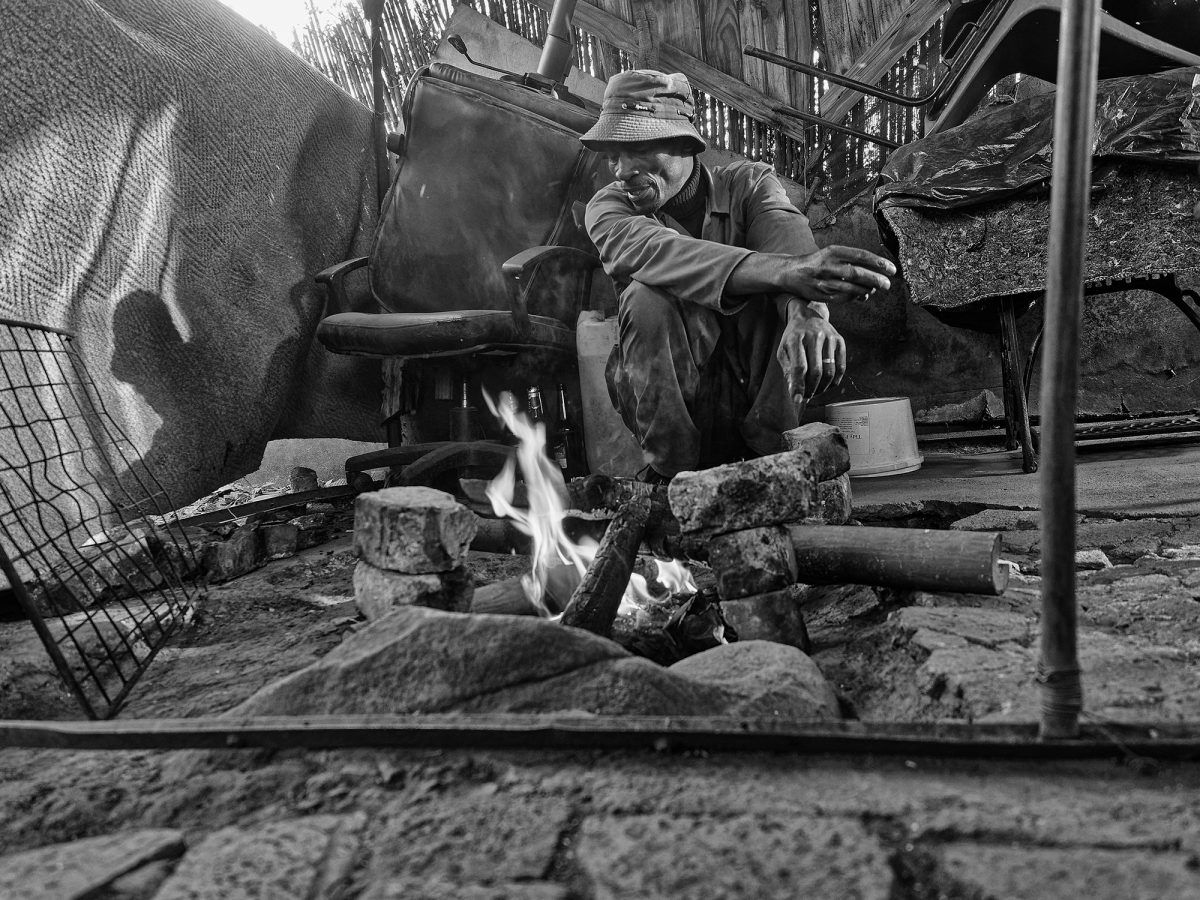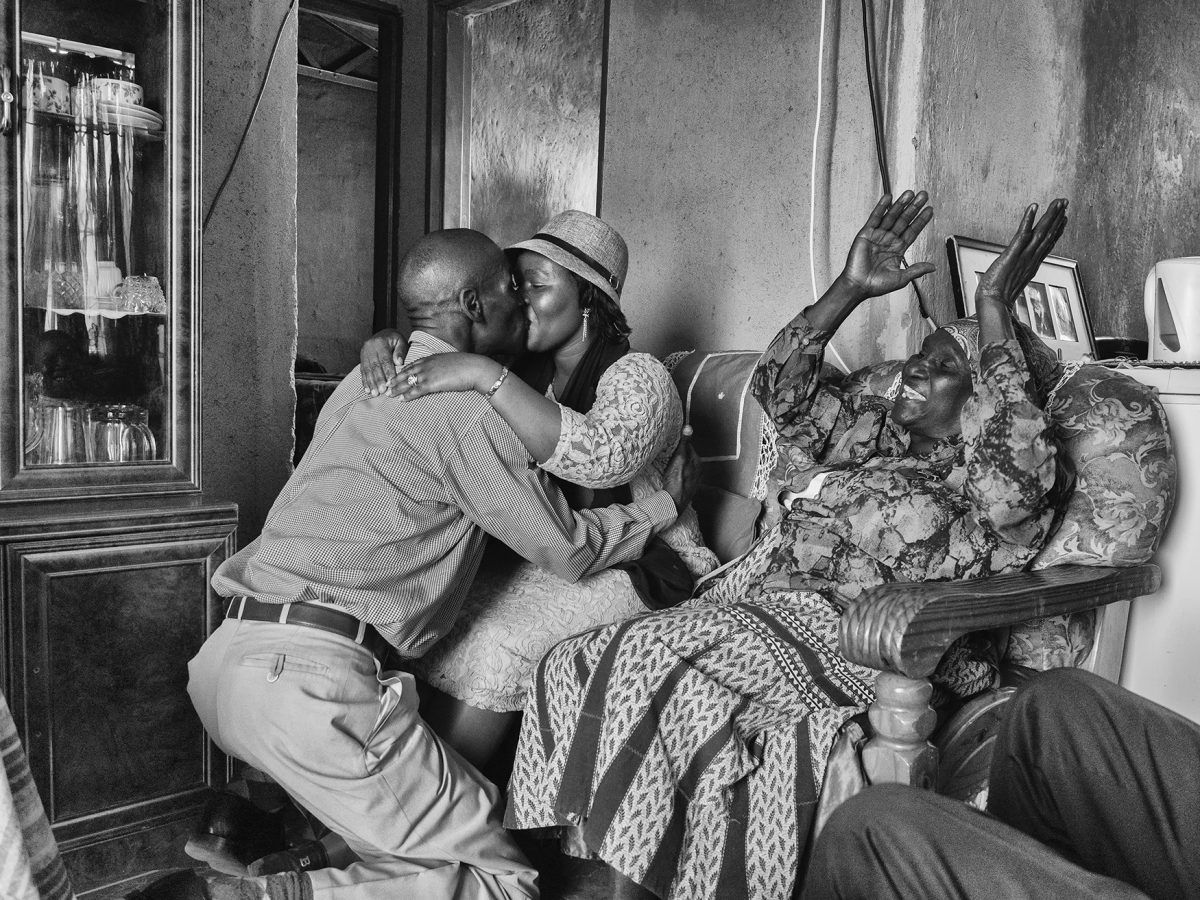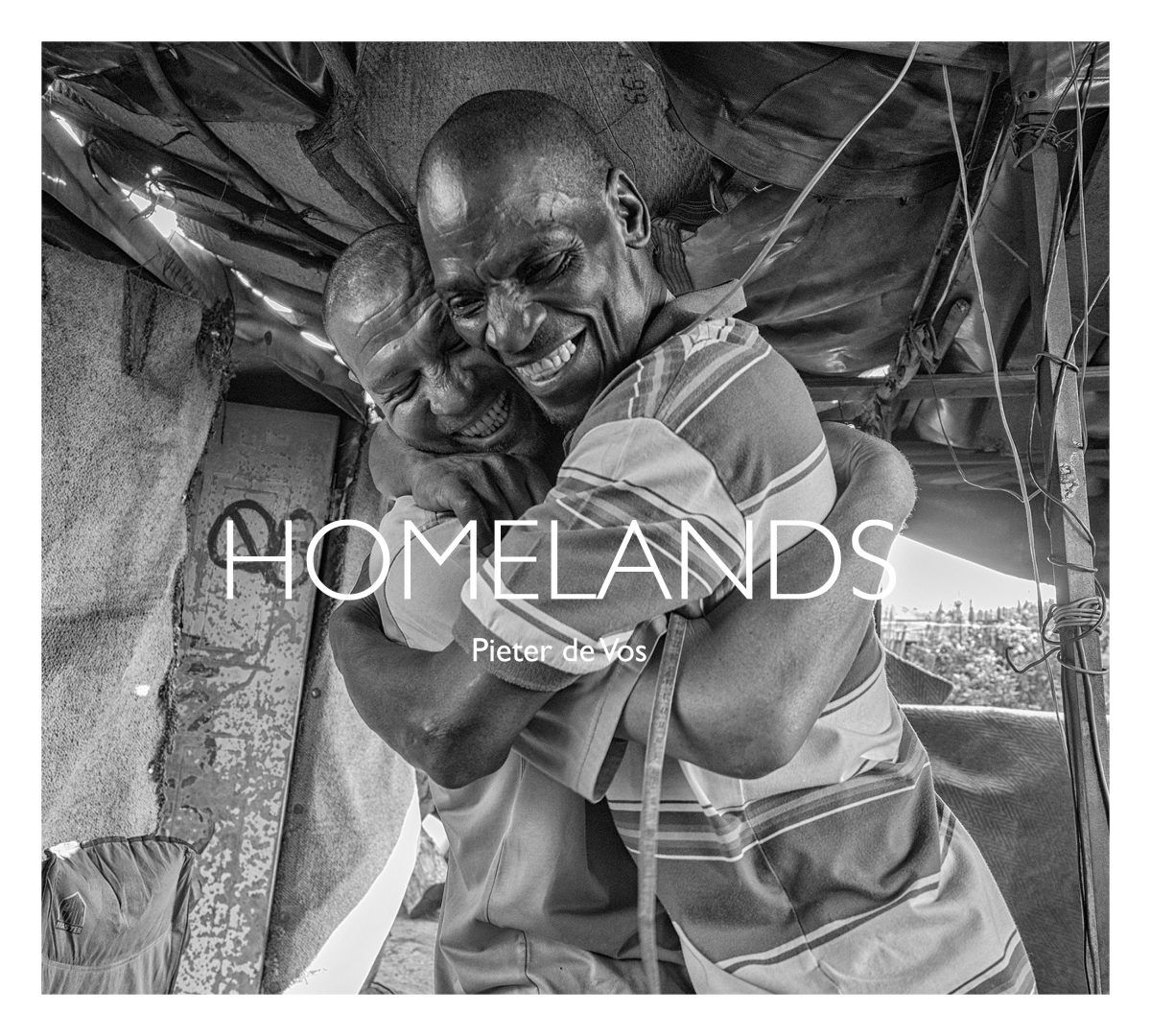blog
Book Review: Homelands by Pieter de Vos

Donald Banda warms himself next to a fire on a cold August night in 2016. These images are copyright Pieter de Vos from the book Homelands
My interest in this book stems from a visit to South Africa in the early 1980s and the year that I spent there as a delegate of the International Committee of the Red Cross, mostly in Kwazulu / Natal. So I have seen my share of South African townships. That was in the mid1990s, when Mandela came to power and many had high hopes that now everything would get better. I do not really know whether life of the majority in the 25 years since has improved (I’m skeptical of what the media tell me) but wasn’t too surprised when reading in Stephan de Beer’s contribution (The Locale of the Sacred) to this book: “Today in South Africa we live the illusion of a (post)apartheid city. Although much has changed over the past twenty-five years, much also remained the same. In the (post)apartheid city much of the segregated urban fabric remained, and, sometimes even intensified.”
When I read in the introduction: “I recorded and transcribed hundreds of hours of conversations to produce narrative accounts, which represent the sensitive interweaving of discursive fragments”, I was somewhat perplexed for I hadn’t expected such academic language and pretentiousness. Fortunately, for the most part the texts in this tome are readable.
However, I decided to concentrate on the pictures that Leilani Farha, UN Special Rapporteur on the Right to Housing, in the foreword describes as “the breathtaking photographs by Pieter de Vos”. I’m not really sure that “breathtaking” is the right word for the images in this tome. They are all in black and white. The effect they had on me was mainly heartwarming, I felt touched by this mix of joy and sadness when looking at them. Moreover, they seem to have been taken in a humanistic spirit, in a loving, caring, and dignified way, that is.

Laundry spans the divide between two shacks in Woodlane Village (August 2015) These images are copyright Pieter de Vos from the book Homelands
Woodlane village started in 2004 when people, many of them refugees, occupied land in the suburb of Moreleta Park near Pretoria (City of Tshwane Metropolitan Municipality). It comprises “2846 households, representing around 3,000 people from Zimbabwe, Lesotho, Mozambique, and provinces in South Africa. Most of the residents are political and economic migrants.”
And, of course, this informal settlement is contested. What isn’t? Like many other such settlements, it was never meant to stay but created as a temporary camp. Yet, as always, life has its own rules and follows its own course. Once you start something without longterm planning things have a tendency to go their own way.

Husband and wife (August 2015). These images are copyright Pieter de Vos from the book Homelands
There’s also “an oral history of home and belonging” by Donald Banda. It is a text that impressively stresses the importance of community. “Gone are the days of the night vigils and the honoring of the dead. In my youth, people from all over gathered for a wake. They showed respect with silence. They brought their condolences, strengthening one another with the verses of the departed … We all experience sickness and frailty. We all die. And in this forgetting, they soon discovered that when tragedy befell their family, only a handful of people showed up … But we can safeguard against this by lending a hand to our neighbors ….”
Again Leilani Farha: “‘Homelands’ is a cry to those of us living comfortably, to governments, to those with power and influence, that while conditions in informal settlements are not acceptable, there is something very special to preserve there.” That sums it up nicely, I find.

HOMELANDS: Life on the Edge of the South African Dream
by Pieter de Vos
Daylight Books
https://daylightbooks.org/products/homelands-life-on-the-edge-of-the-south-african-dream
https://pieterdevos.ca
Location: Online Type: Black and White, Book Review, Documentary
Events by Location
Post Categories
Tags
- Abstract
- Alternative process
- Architecture
- Artist Talk
- artistic residency
- Biennial
- Black and White
- Book Fair
- Car culture
- Charity
- Childhood
- Children
- Cities
- Collaboration
- Community
- Cyanotype
- Documentary
- Environment
- Event
- Exhibition
- Faith
- Family
- Fashion
- Festival
- Film Review
- Food
- Friendship
- FStop20th
- Gender
- Gun Culture
- Habitat
- Hom
- home
- journal
- Landscapes
- Lecture
- Love
- Masculinity
- Mental Health
- Migration
- Museums
- Music
- Nature
- Night
- nuclear
- p
- photographic residency
- Photomontage
- Plants
- Podcast
- Portraits
- Prairies
- Religion
- River
- Still Life
- Street Photography
- Tourism
- UFO
- Water
- Zine

Leave a Reply